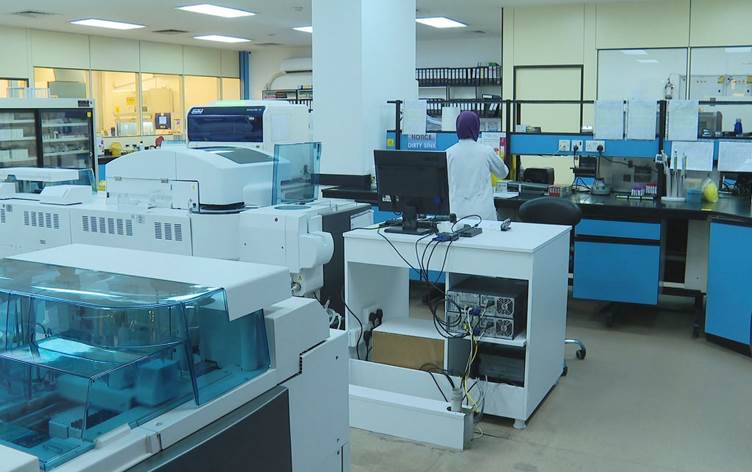ERBIL, Kurdistan Region - A medical laboratory owner in Erbil blamed the fluctuating prices in the city’s different laboratories on agreements between doctors and the clinics to cover their costs, including the salaries of their assistants and electricity costs.
A Rudaw investigation into the different prices of medical examinations in Erbil’s laboratories revealed a stark difference in prices, with some laboratories charging as much as 100,000 Iraqi dinars for some tests while others charge as little as 25,000 dinars for the same tests.
“The reason for the high prices of tests is due to the relationship between laboratories and doctors. Some laboratories have agreed with doctors to pay the expenses of their secretaries, their rent, and provide them with some gifts, which has placed the burden on patients and made prices rise,” Lawen Rebwar, a laboratory owner, told Rudaw’s Farhad Dolamari earlier this week.
Rudaw conducted six tests in four different laboratories in Erbil within less than two hours. Their costs varied, with the cheapest - at Rebwar’s laboratory - costing 27,000 dinars, and the most expensive costing 103,000 dinars.
After receiving the results, it was revealed that the tests were identical.
However, the manager of a higher-priced laboratory argued that their tests provide higher quality results.
“It is true that our prices are a little high, but our quality is also high. Besides, we have high daily expenses which increases the prices. When a patient comes here to get tested, he does not have to verify his results by going to several other places,” said Farman Kawani.
Dr. Mustafa Osman, a nephrologist, said that doctors “do not decide on treatment based on tests alone.”
“We also carry out physical examinations and other tests to reach a conclusion and prescribe medication,” he said, adding that the test results from the four laboratories were identical.
The costs of tests in the Kurdistan Region’s medical laboratories have yet to be regulated. Advertisements on social media websites show that there are tests that cost only 1,000 dinars in some laboratories, but up to 20,000 or 25,000 dinars in other laboratories.
A Rudaw investigation into the different prices of medical examinations in Erbil’s laboratories revealed a stark difference in prices, with some laboratories charging as much as 100,000 Iraqi dinars for some tests while others charge as little as 25,000 dinars for the same tests.
“The reason for the high prices of tests is due to the relationship between laboratories and doctors. Some laboratories have agreed with doctors to pay the expenses of their secretaries, their rent, and provide them with some gifts, which has placed the burden on patients and made prices rise,” Lawen Rebwar, a laboratory owner, told Rudaw’s Farhad Dolamari earlier this week.
Rudaw conducted six tests in four different laboratories in Erbil within less than two hours. Their costs varied, with the cheapest - at Rebwar’s laboratory - costing 27,000 dinars, and the most expensive costing 103,000 dinars.
After receiving the results, it was revealed that the tests were identical.
However, the manager of a higher-priced laboratory argued that their tests provide higher quality results.
“It is true that our prices are a little high, but our quality is also high. Besides, we have high daily expenses which increases the prices. When a patient comes here to get tested, he does not have to verify his results by going to several other places,” said Farman Kawani.
Dr. Mustafa Osman, a nephrologist, said that doctors “do not decide on treatment based on tests alone.”
“We also carry out physical examinations and other tests to reach a conclusion and prescribe medication,” he said, adding that the test results from the four laboratories were identical.
The costs of tests in the Kurdistan Region’s medical laboratories have yet to be regulated. Advertisements on social media websites show that there are tests that cost only 1,000 dinars in some laboratories, but up to 20,000 or 25,000 dinars in other laboratories.








Comments
Rudaw moderates all comments submitted on our website. We welcome comments which are relevant to the article and encourage further discussion about the issues that matter to you. We also welcome constructive criticism about Rudaw.
To be approved for publication, however, your comments must meet our community guidelines.
We will not tolerate the following: profanity, threats, personal attacks, vulgarity, abuse (such as sexism, racism, homophobia or xenophobia), or commercial or personal promotion.
Comments that do not meet our guidelines will be rejected. Comments are not edited – they are either approved or rejected.
Post a comment